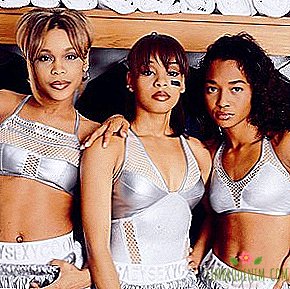“I am not racist, but ...”: Why do we so rarely notice hidden discrimination
"I am not a racist myself but, it seems to me, let us continue to be left without blacks(hereinafter the author's vocabulary is preserved. - Ed.) players. Even if a super-soccer player comes to us, but it will be dark, I will treat it mediocre. Probably just out of habit. Still, we have been holding no blacks for a very long time. After all, we have a northern city, and I would like to see people from the North, ”the Zenit fan said in an interview when asked if the active fans of the club are nationalists.

"I am not a racist / sexist / Islamophobe / homophobic, but ..." - very often speech begins with this or similar phrase, which turns out to be exactly racist, sexist or simply discriminatory, although the author tries to convince us otherwise. The idea that some arguments in public discussions are mistaken for discrimination is very popular - Quora users are discussing this, and journalists devote large columns to this. Is it really so - a big question, at least because if the statement doesn’t offend anyone, he doesn’t need a disclaimer.
Linguist Ten Adrianus van Dijk, who explores how racial prejudices express themselves in speech, notes that a design like "I have no prejudices, but ..." is used primarily to look better and more progressive in front of the other person. True, the phrase that comes after the "but" contrasts with this thought and emphasizes even more that it is worthwhile to at least think about whether it discriminates anyone. A person who starts a conversation with a denial, most likely, also feels it - otherwise he would not try to separate himself from what he says.
Psychologist Paul Bloom says that stereotypes are a natural phenomenon for the human psyche: “You see me, you know my name, you can guess something about me and draw some conclusions. You can guess my origin, my political biases, my religious views. And the fact is that these judgments often turn out to be true. We do it very well. " This skill should even help us in life: for example, we imagine what an "average" chair and an "ordinary" dog are, so that when we meet other than those we have already seen, chairs and dogs, we know what expect: you can sit on a chair, and the dog can bark.
The habit of following national stereotypes in order to be more attentive to another culture and better understand it, in practice turns out to be an attempt to drive people into the usual and convenient framework.
Problems begin where the desire to categorize the world around us is out of control, and people refuse to reconsider their stereotypes, even when they are directly told how far they are from reality. Many even begin to defend the right to categorization: “Refusing stereotypes actually shows that you are insensitive to others. We need them to make sure that our actions are culturally relevant, that we are attentive to others. Imagine a world where you don’t use at all stereotypes - it will be a disaster, - says Quora user of Indian origin. - This is a means of self-preservation. To think that you should not go to a party with a former criminal is reasonable! Just to assume that a Muslim man does not want to go and in a bar to drink, and the Japanese woman will be unpleasant if you try to kiss her on the cheek, - in fact, not racism. "
“To say that„ X, Y, Z is not related to racism “- is a privilege,” columnist Guardian Koko Han responds to this. “Not because you don’t know that racism is closely related to this problem, but because it’s you it doesn't concern you, it distracts you from what you want to say and your outlook on things. And this position is clearly more reasoned and thought out than the living experience of other people, huh? "

Of course, the rejection of the usual picture of the world can not happen instantly. We live in a system riddled with discrimination: even if we think that we have got rid of prejudices and do not express them openly, they can still slip in actions, careless phrases and jokes, and the norms evolve almost every day. Hidden discrimination is no less dangerous than open manifestations of hatred: it sets the coordinate system in which discrimination develops, while creating the illusion that the problem has already been solved. Benevolent sexism is like opening the door, the habit of always paying for a woman in a restaurant or helping her get out of transport, even if she herself is uncomfortable, seems like concern for a woman - although she actually says that she is still treated as more weak by default. The habit of following national stereotypes in order to be more attentive to another culture and better understand it, in practice, most often turns out to be the same desire to drive people into familiar and convenient frames, rather than an interest in someone else's origins.
Many begin to look for excuses in other people - so the phrase "My boyfriend / girlfriend thinks that this is normal and does not take offense at all" appears. Another Quora user says that he lives in Manila and talks a lot with people of Philippine descent with the appropriate pronunciation: "After a few glasses of beer, I begin to depict the accents of my friends, of course, exaggerating them greatly. Are they insulting? Do they consider me a racist? Of course damn it, no. Instead, they answer me the same way - they begin to depict my British accent. "
Behind designs like “I don’t want to offend anyone, but ...” often hides the fear that we will not fit in with our own ideas about ourselves
The problem is that such a point of view is itself a product of stereotypical thinking. It comes from the fact that the group that speaks about discrimination is homogeneous - and if something suits one person, it supposedly should automatically arrange the rest. But people are not the same: the fact that one woman does not offend, if she is called the “decoration of the team,” does not mean that it suits the rest; the fact that one of your friends calmly refers to jokes about gays does not mean that they are appropriate. The fact that one particular person is not worried about what many others consider to be a discriminatory practice can be explained by many reasons. Perhaps the person himself is subject to internal discrimination or he is not worried about this particular problem - and this, of course, should not negate the experience of other people. Or maybe he simply says that he is satisfied with everything, because he does not want to engage in long and exhausting disputes, proving that he sees discrimination here. In addition, the friend should not become an indulgence from inappropriate actions.
Behind constructions like “I don’t want to offend anyone, but ...” there is often a fear that we will not fit in with our own ideas about ourselves - we are not racists, not Islamophobes and are fighting sexism, but “one friend” believes that about nothing.
Cover:montego6 - stock.adobe.com (1, 2)




